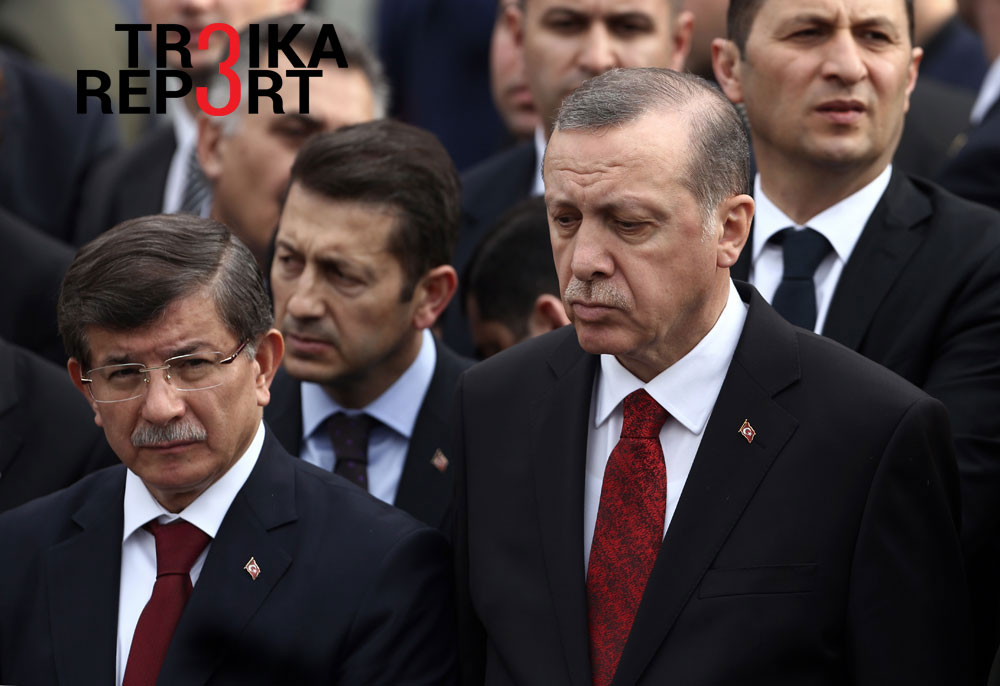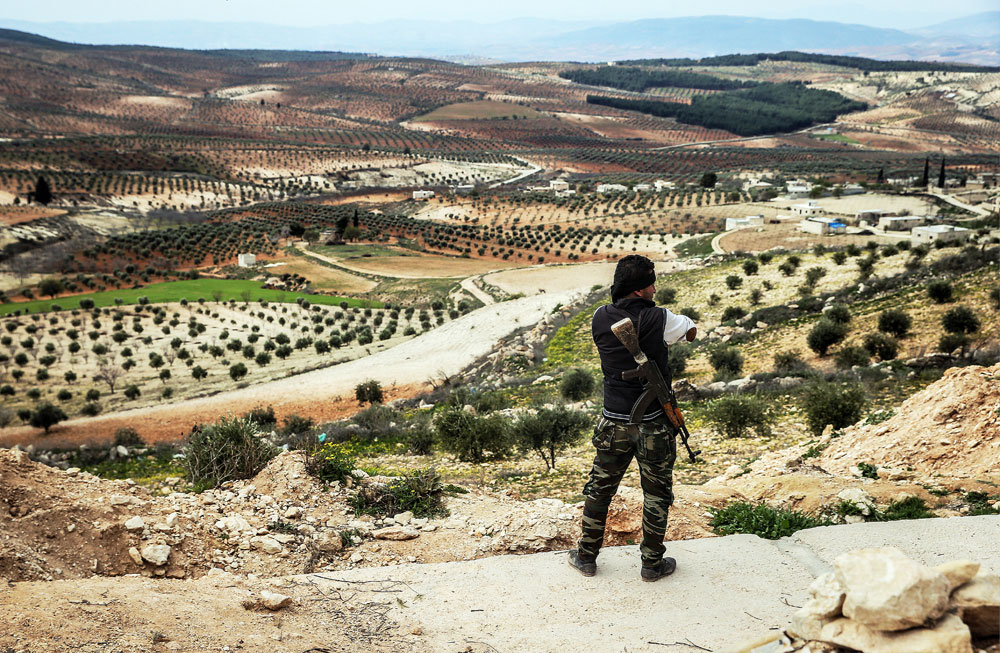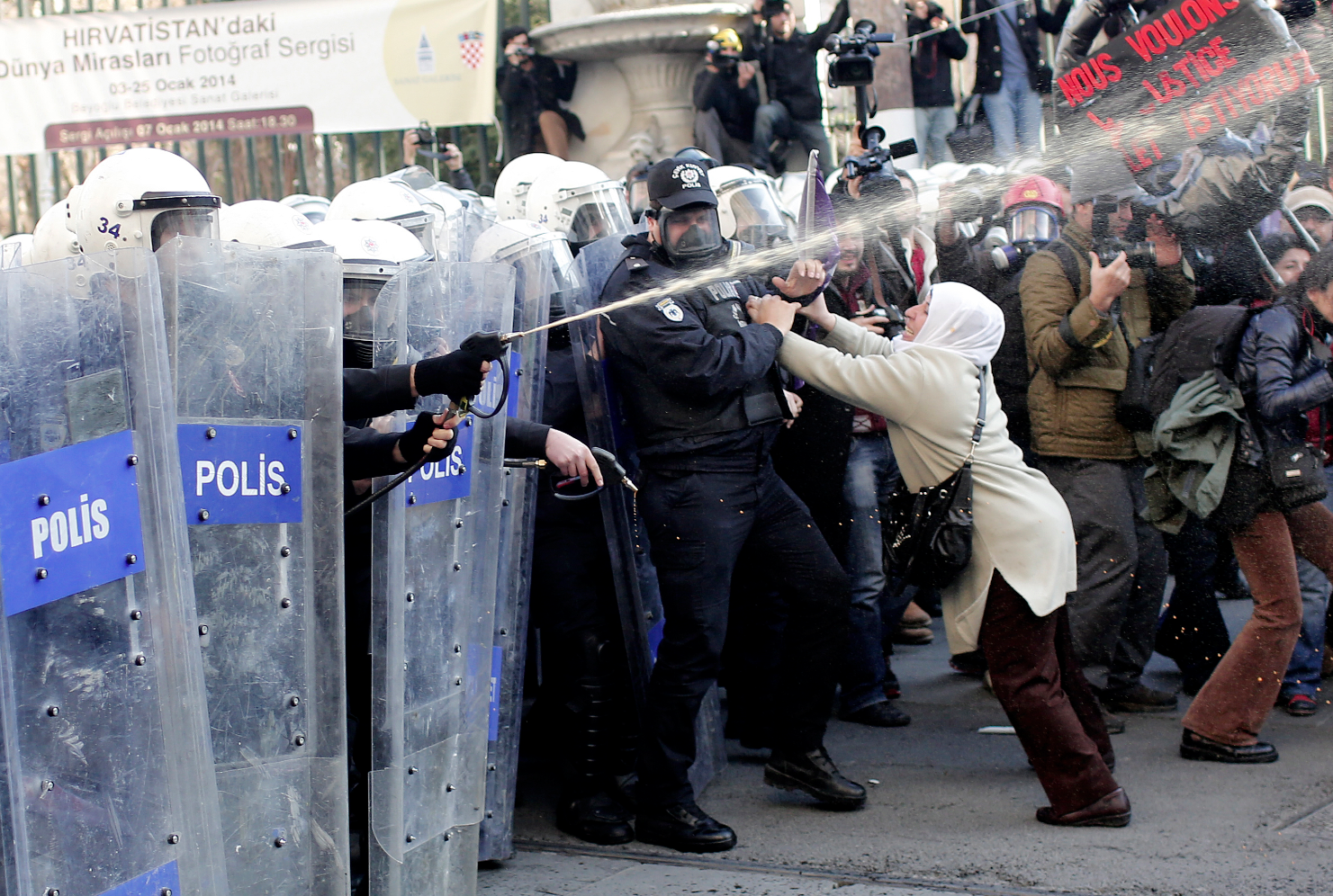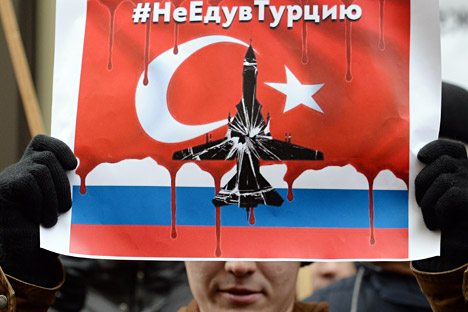Moscow unimpressed with political intrigue in Ankara

Turkey's President Recep Tayyip Erdogan, right, and Prime Minister Ahmet Davutoglu, left, arrive to attend funeral prayers for army officer Seckin Cil, who was killed in Sur, Diyarbakir Wednesday, in Ankara, Turkey, Thursday, Feb. 18, 2016.
APTurkish Prime Minister Ahmet Davutoglu said on May 5 that he was stepping down from his post. Preceding his forced resignation was an abrasive attack on the former professor-turned-politician by President Recep Tayyip Erdogan.
“You should not forget how you got your post,” the embattled head of state publicly told the man whom he handpicked first to be his foreign minister and, in August 2014, his second-in-command.
There was a time when Erdogan used to say: “This is the era of a strong president and a strong prime minister.” This is clearly no longer true.
The dramatic divergence between Turkey’s top leadership began to unveil as Erdogan stepped up his drive for absolute power, scrapping the parliamentary system and introducing presidential rule. The more authoritarian Erdogan became, the less tolerant he became of dissent and protest.
Despite Davutoglu's demonstrative loyalty to Erdogan, he failed to hide differences with the Turkish supremo over the way to handle acute internal and external crises. Some bloggers have scrupulously identified as many as 27 issues on which the duo did not see eye to eye.
Moral zeal of a bookish professor
The former professor of political science from a fringe Istanbul University proved himself as a flexible moderate on many counts, not prone to making rash and brutal solutions.
Unlike Erdogan, who sometimes gets outraged and lashes out when targeted by critics, Davutoglu did not approve of jailing journalists and academics who subscribe to a different set of values. The Prime Minister was not keen to label environmentalists as “agent provocateurs” and rough them up.
More importantly, Davutoglu seemed to be very serious on combating corruption in high places. Acting in tandem with his deputy Ali Babacan, he drafted the “transparency package,” which raised hackles among some top functionaries of the ruling Justice and Development Party (AKP).
Davutoglu refused to shield four former ministers implicated in a corruption case from court hearings last year. He was quoted as saying: “We will break the arm of anyone involved in corruption, even if it is my brother.”
Rumour has it that Erdogan was not amused by the moral zeal of his appointee.
Diplomat not a warrior
This episode could have been the turning point in the relationship between the two. After elections on June 7, 2015, the AKP lost its parliament majority. Davutoglu would not rule out forming a coalition government with the main opposition party. This must have sounded like blasphemy to the hard-core conservatives within the AKP and, in their view, amounted almost to high treason.
The recent interaction with the European leaders enhanced Davutoglu’s credentials as a pragmatist with whom it was possible to do business. But when he proposed that all those refugees or economic migrants who had crossed the Aegean Sea into Greece illegally be taken back, Erdogan immediately disavowed the offer.
Davutoglu must also have crossed a red line when he suggested re-starting talks with the Kurdish militants. This ran counter to the deliberate demonization of all Kurds by pro-Erdogan officials and media in order to bolster nationalist sentiment.
Finally, while Erdogan became the target of consistent critical comments in the Western media, his prime minister was largely spared and even praised occasionally for his flexibility.
This could be one of the root causes of an anonymous blog that recently accused Davutoglu of conspiring with the West and Turkey’s enemies to challenge Erdogan, who is now routinely portrayed as an authoritarian ruler with an inflated ego and erratic habits.
Purges but no backfire
Davutoglu’s hasty resignation amid the multitude of domestic and external problems besieging Turkey serves as confirmation that internal squabbling within the AKP is the direct consequence of accumulated frustration. It is fair to assume that fissures within the ruling party reveal deeper internal divisions, not necessarily embodied in the figure of the moustachioed university theoretician.
Purges are inevitable, with members of the “inner circle” close to Davutoglu likely to be dismissed. Among the earmarked victims could be Mehmet Simsek, a deputy prime minister responsible for the economy who reportedly enjoys high repute with international investors. This would weaken the position of the relative pragmatics in the AKP and aggravate disagreements over the refugee crisis.
Speculation about the chances of Davutoglu rallying supporters of like-minded parliamentarians and establishing a separate centre of power within the AKP is groundless. Having no grassroots constituency, Davutoglu is simply an official who owes his elevation to Erdogan.
Little wonder then that his resignation has failed to make huge waves, with only a temporary four percent depreciation of the Turkish lira against the U.S. dollar. He wisely made it clear that “no one heard, or will hear, a single word from my mouth against our president.”
Revolution devouring its children
In Europe, Davutoglu’s regular interlocutors will miss him as a person with whom they spoke the same language, in many senses, but now, as one Turkish commentator has put it, he is already “entering the ‘pantheon’ of political corpses.”
The resignation was duly recorded in Russia, but was marked neither with relief (Davutoglu claimed originally it was he who ordered the shooting down of the Russian Su-24 jet in November 2015) nor regret. Moscow is aware that there is only one person who really calls the shots in Turkey, and he is intransigent when it comes to admitting mistakes.
The end of the Davutoglu era will, however, formally close the chapter of the failed diplomatic offensive known as “zero problems with neighbours,” authored by the former academic.
This is the death knell for the myth of the resurgent “Neo-Ottoman Empire,” which envisions a new alliance with Turkey at the core of it as the gravitational centre and power broker.
In fact, the rise to prominence of political Islam, largely sponsored and promoted by the AKP, the creeping Islamization of the state apparatus with an attendant spill-over in society, Erdogan’s inflated ambitions of a sultan-style reign as president: all these developments in Turkey constitute a departure from the Ataturk legacy.
Fundamentally, it is a revolution in its own right. But revolutions are known to devour their own children, are they not?
The opinion of the writer may not necessarily reflect the position of RIR or its staff.
All rights reserved by Rossiyskaya Gazeta.
Subscribe
to our newsletter!
Get the week's best stories straight to your inbox


